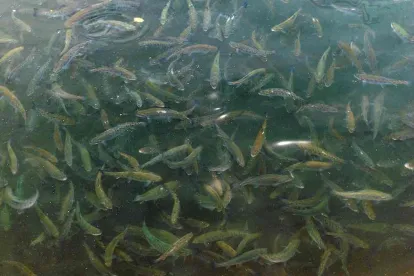On February 11, 2021, the Ninth Circuit upheld the district court’s decision vacating Nationwide Permit (NWP) 48, Commercial Shellfish Mariculture Activities, in Washington State. As previously discussed, industry appealed the lower court’s holding that the United States Army Corps of Engineers (Army Corps) violated the Clean Water Act and the National Environmental Policy Act (NEPA) when it issued NWP 48 in 2017. Industry also appealed the lower court’s order that vacated the permit and prior authorizations under it in Washington State and temporarily stayed vacatur in certain instances. The government notably did not appeal.
In a short order, the Ninth Circuit affirmed the district court’s finding that the Army Corps failed to adequately explain its finding that the 2017 version of NWP 48 would have “no significant impact” under NEPA. The court concluded that the Army Corps’ reasoning behind issuing NWP 48 contradicted or did not fully support the factual circumstances where NWP 48 would apply. For example, the court noted that the Army Corps inappropriately relied on a study on a single species to make conclusions about a number of species.
The Ninth Circuit also held that the district court did not abuse its discretion by crafting “an equitable remedy” because courts may deviate “when equity demands.” Supporting its reasoning, the Ninth Circuit noted that the district court “reasonably balanced the competing risks of environmental and economic harms.”
Industry appellants may petition the United States Supreme Court within 90 days from the entry of judgment.
The short-term impact of the Ninth Circuit’s ruling depends on what becomes of the Army Corps’ final rule published on January 13, 2021, modifying and reauthorizing NWP 48 (Final Rule). The Final Rule seeks to remedy the alleged deficiencies of the 2017 NWP 48 raised by the district court. (The Final Rule also created two new related NWPs: NWP 55, Seaweed Mariculture Activities and NWP 56, Finfish Mariculture Activities.) While the 2021 NWP 48 was scheduled to take effect on March 15, 2021, the Final Rule may be delayed, rescinded, or modified by the Biden Administration. Additionally, Congress could pass a joint resolution of disapproval of the Final Rule under the Congressional Review Act. Furthermore, as with the 2017 NWP 48, the 2021 NWP 48 could be partially or fully vacated by a court. Co-plaintiff in the foregoing case has already served a Notice of Intent to Sue, alleging that the NWPs authorized under the Final Rule violate the Endangered Species Act.
If the 2021 NWP 48 takes effect as scheduled, the impact of the Ninth Circuit’s decision would be buffered some. Shellfish growers could seek authorization under the 2021 NWP 48, albeit, as noted by the Ninth Circuit, the 2021 NWP 48 does not necessarily grant Washington shellfish growers full relief had the authorizations under the 2017 NWP 48 stood. Additionally, even if the 2021 NWP 48 takes effect, commercial shellfish growers will face some uncertainly over the permit in light of anticipated legal opposition. Navigating that uncertainty will require a careful assessment of the risks of relying on the 2021 NWP 48 versus the feasibility and costs of seeking a more onerous individual permit.
On the other hand, if the 2021 NWP 48 is rescinded, disapproved by Congress, or vacated, the impact of the Ninth Circuit’s decision’s will be significant—shellfish growers requiring Section 404 authorization, including those previously authorized under NWP 48, will be required to obtain individual permits, which could be a time-consuming and uncertain process.
The long-term impact is less uncertain. Absent a successful appeal, the Ninth Circuit’s decision sets a heightened bar for the Army Corps to meet when issuing NWPs.






 />i
/>i
